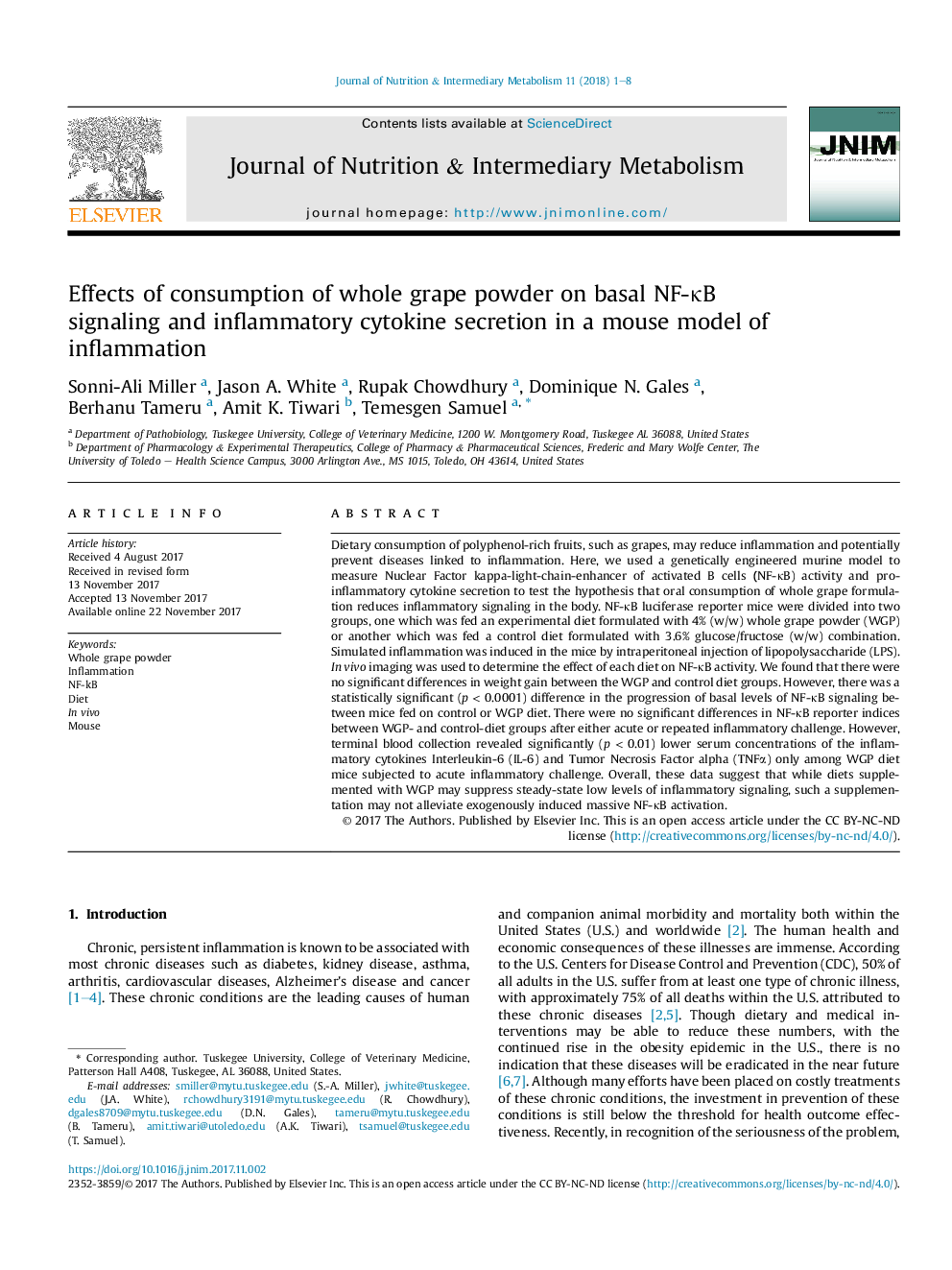| Article ID | Journal | Published Year | Pages | File Type |
|---|---|---|---|---|
| 8589155 | Journal of Nutrition & Intermediary Metabolism | 2018 | 8 Pages |
Abstract
Dietary consumption of polyphenol-rich fruits, such as grapes, may reduce inflammation and potentially prevent diseases linked to inflammation. Here, we used a genetically engineered murine model to measure Nuclear Factor kappa-light-chain-enhancer of activated B cells (NF-κB) activity and pro-inflammatory cytokine secretion to test the hypothesis that oral consumption of whole grape formulation reduces inflammatory signaling in the body. NF-κB luciferase reporter mice were divided into two groups, one which was fed an experimental diet formulated with 4% (w/w) whole grape powder (WGP) or another which was fed a control diet formulated with 3.6% glucose/fructose (w/w) combination. Simulated inflammation was induced in the mice by intraperitoneal injection of lipopolysaccharide (LPS). In vivo imaging was used to determine the effect of each diet on NF-κB activity. We found that there were no significant differences in weight gain between the WGP and control diet groups. However, there was a statistically significant (p < 0.0001) difference in the progression of basal levels of NF-κB signaling between mice fed on control or WGP diet. There were no significant differences in NF-κB reporter indices between WGP- and control-diet groups after either acute or repeated inflammatory challenge. However, terminal blood collection revealed significantly (p < 0.01) lower serum concentrations of the inflammatory cytokines Interleukin-6 (IL-6) and Tumor Necrosis Factor alpha (TNFα) only among WGP diet mice subjected to acute inflammatory challenge. Overall, these data suggest that while diets supplemented with WGP may suppress steady-state low levels of inflammatory signaling, such a supplementation may not alleviate exogenously induced massive NF-κB activation.
Keywords
Related Topics
Life Sciences
Biochemistry, Genetics and Molecular Biology
Endocrinology
Authors
Sonni-Ali Miller, Jason A. White, Rupak Chowdhury, Dominique N. Gales, Berhanu Tameru, Amit K. Tiwari, Temesgen Samuel,
